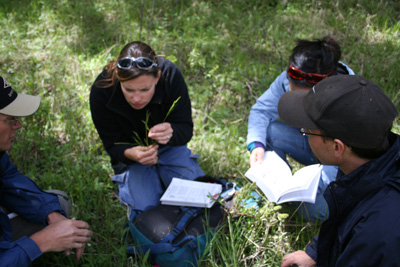Tannas Conservation Services (TCS) and Eastern Slopes Rangeland Seeds (ESRS) are pleased to host their annual plant identification course that runs in June (15-19) 2026. The course will be held in three components, forbs, grasses and willows/sedges. Each component will involve a classroom session but will focus on field keying and identification using The Common Plants of The Western Rangelands as a reference guide.
These courses have been developed as hands on courses that instill practical skills for professionals and amateur botanists alike. Our instructors include expert plant taxonomists with over 30 years’ experience as well as some young professionals that have won international awards in plant identification competitions.
In these courses we train each student how to identify vascular plants within field conditions. Students will be able to select the instructor they wish to learn from and switch instructors in order to learn from each instructor’s experience.
Course Prices Click Here
- Entire Course $ 616.44
- Any one day $ 173.61/day
- Custom course min 10 people $165 person/day (may vary by location)
Books and Resources
- Common Plants of the Western Rangelands – Complete Set $90.86
- Forbs $36.07
- Grasses and Grass Like $31.59
- Trees and Shrubs $26.00
For more information Click Here and for Registration Click Here


